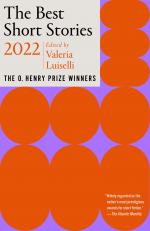|
This section contains 546 words (approx. 2 pages at 400 words per page) |

|
Screen Time Summary & Study Guide Description
Screen Time Summary & Study Guide includes comprehensive information and analysis to help you understand the book. This study guide contains the following sections:
This detailed literature summary also contains Quotes and a Free Quiz on Screen Time by Alejandro Zambra.
The following version of this short story was used to create the guide: Zambra, Alejandro. "Screen Time." The Best Short Stories 2022: The O. Henry Prize Winners. Vintage Anchor Publishing, 2022.
Alejandro Zambra's short story "Screen Time" is written from the third person point of view and employs both the past and present tenses. Throughout the piece, the author distorts conventional notions of the narrative plot line. Such formal distortions are in service of the author's thematic considerations and commentaries. For the sake of clarity, the following summary relies upon a more linear mode of explanation.
When the father was growing up, he watched television almost constantly. The television in his childhood home was always on, convincing him that the device could not be turned off. Meanwhile, the mother did not watch television until she was 10 years old. Her mother told her that the signal did not reach their home.
Years later, when the father and mother met, they often watched movies and television shows together. After they got married and the mother became pregnant, they became engrossed in many fictional worlds. However, in the wake of their son's birth, the couple's relationship to television began to shift. They no longer wanted complex dramas to engage with. Rather, they could derive this mental stimulation from the books they read and wrote during the day. At night, they wanted mindless and inane shows that distracted them and made them laugh.
In spite of the mother and father's love for television, they decide that their two-year-old son should not be exposed to screens for some time. They therefore wait until he is in bed each night to turn on the TV. The boy is familiar with the device's presence in his home. However, because he has never seen it play, he does not understand what it is for.
The boy's father is from another country. The second time the parents take the boy to this country, he is old enough to be walking and talking. On the flight, the boy is generally well-behaved. However, when his parents inform him that they have left some of his toys behind, he starts to cry. To calm him down, they let him watch the episode of a show about a monster.
When a virus breaks out, the family is forced into lockdown. The longer that the lockdown lasts, the more worried the parents become. They fear that their son will become bored, antsy, and misbehaved. They worry that he misses the outings they used to take. When they dismiss these concerns, insisting that he understands little of what is going on, the mother and father realize that they do not know what is going on either.
As lockdown drags on, the mother and father become increasingly disillusioned with their work. Each time they sit down to write, their art appears meaningless and useless. One night, while in their room together, the couple notices how fast their nails have been growing. Although they have not been arguing much of late, they start to bicker about whose nails are growing fastest. They entwine their hands as if they will be able to discern the winner if they stare at their hands long enough. Their competition ends when they burst into laughter.
Read more from the Study Guide
|
This section contains 546 words (approx. 2 pages at 400 words per page) |

|



